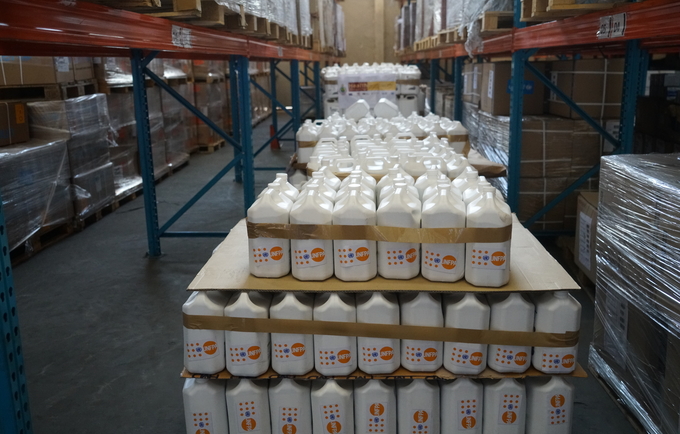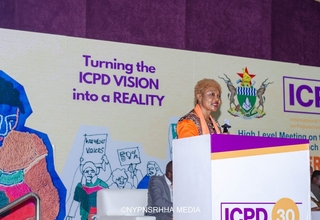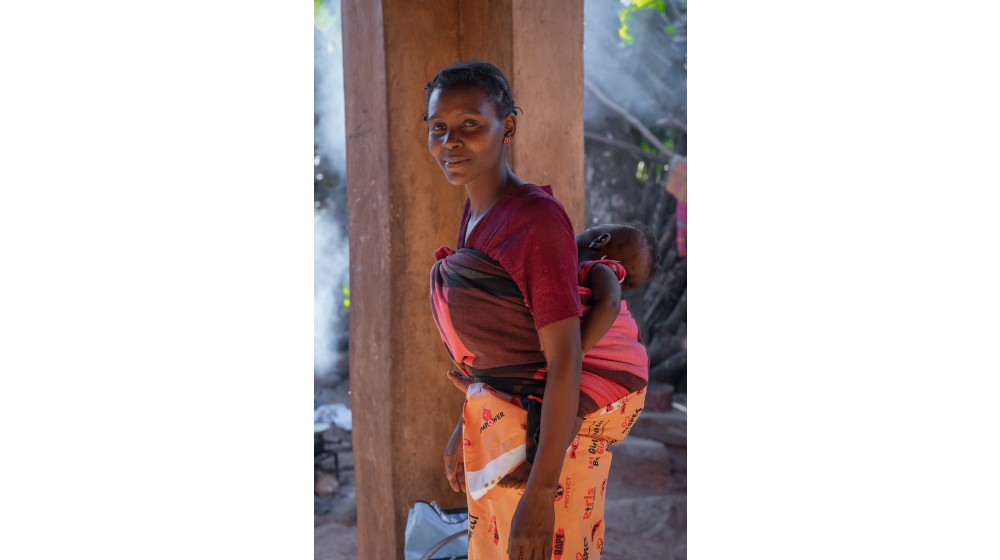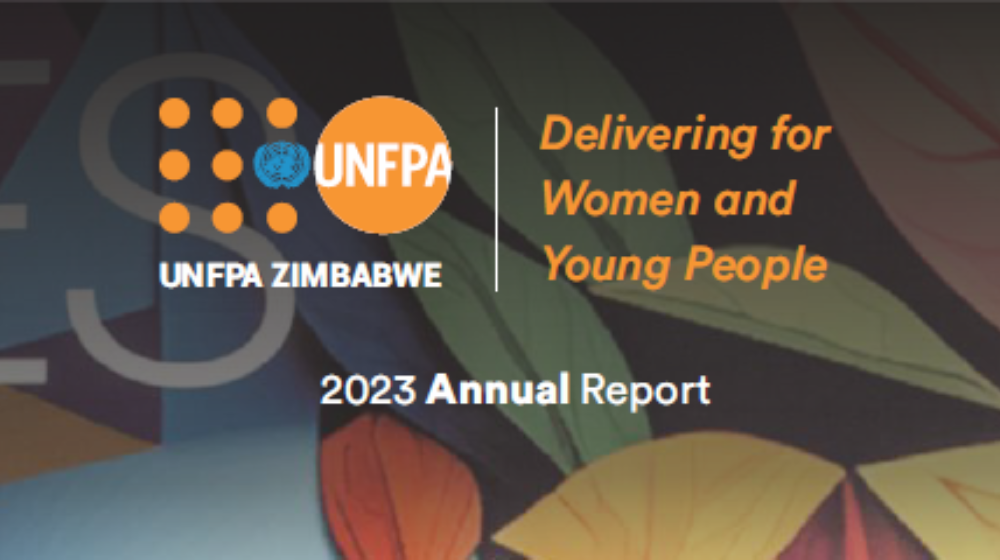Harare, 7 August 2020 – The United Nations Population Fund (UNFPA) has released over $2.5 million to support the Government of Zimbabwe and various implementing partners to continue providing quality sexual reproductive health and Gender Based Violence services during the global COVID19 pandemic. The funds are meant to ensure the continuation in the provision of sexual reproductive health services including Gender Based Violence (GBV) prevention and services for survivors during the COVID19 lockdown. COVID-19 is deepening existing inequalities and vulnerabilities, particularly for women and girls. With many countries, Zimbabwe included, on lockdown and health systems struggling to cope, sexual and reproductive health services have been negatively impacted, and GBV cases are on the increase.
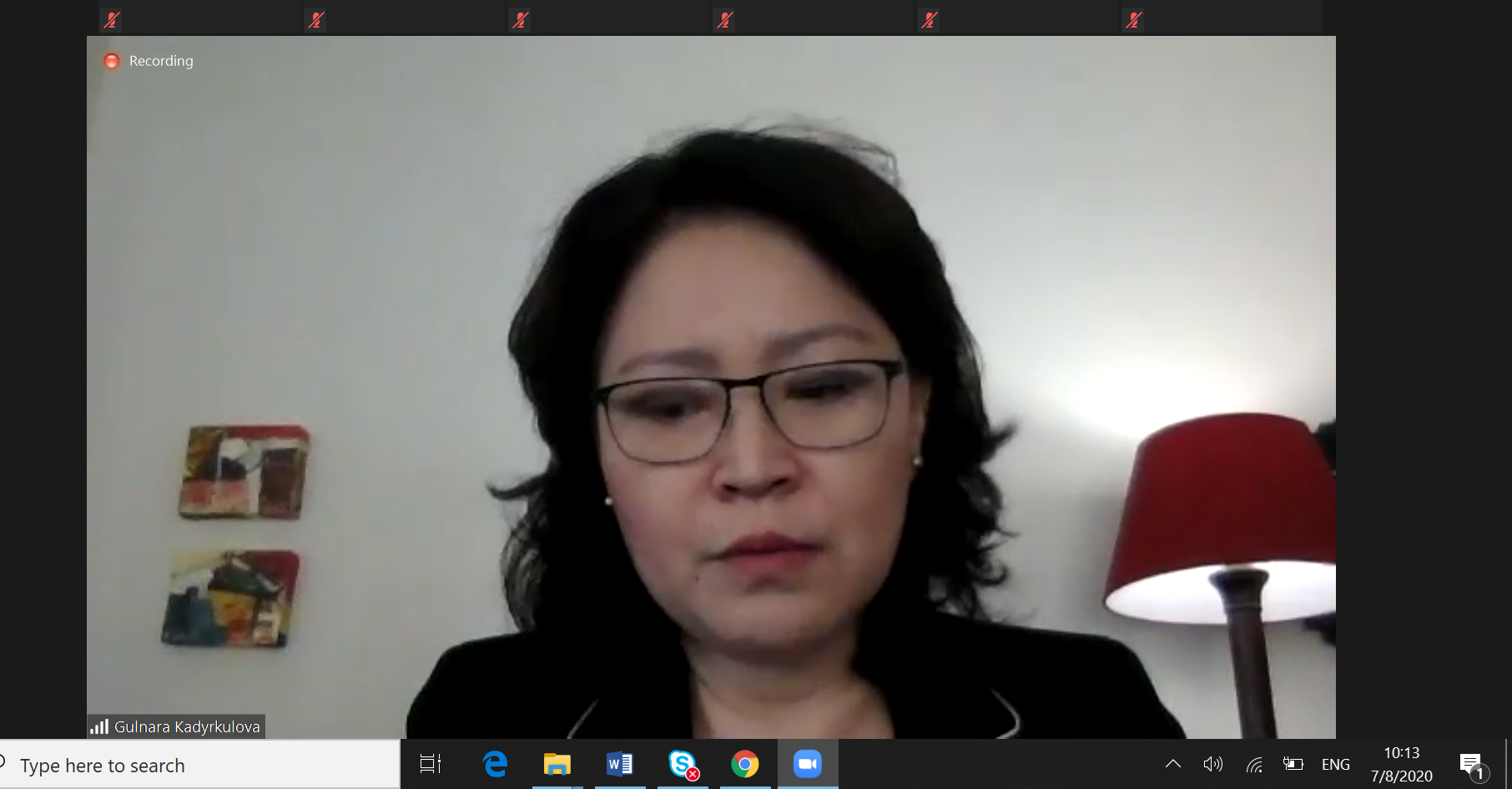
Speaking at a media briefing to commemorate World Population Day UNFPA Deputy Country Representative Ms Gulnara Kadrykulova said the COVID-19 pandemic that has affected the lives of many people and pushed up incidences of GBV. The theme for this year’s World Population Day is “Putting the brakes on COVID-19: "Putting the Breaks on COVID-19: How to Safeguard the Health and Rights of Women and Girls Now?”.
“Initiatives to end GBV and harmful cultural practices have also been affected. Globally, COVID-19 continues to disrupt efforts to end harmful practices including averting GBV,” said Ms Kadrykulova. “In Zimbabwe working with various partners and under the leadership of the Ministry of Women Affairs, Community, Small and Medium Enterprise Development UNFPA - has identified current challenges within the COVID19 context and tailored appropriate interventions.”
As lead of the GBV sub cluster in Zimbabwe UNFPA is working with the MOWCSMED to ensure GBV services are among essential services. This is so that survivors and GBV service providers are free to seek for services and provide services respectively during the COVID19 lockdown. In addition, the following support has been provided:
- Scaling up of the mobile One Stop Centres model for multi-sectorial service delivery, including health, police and legal support
- Equipping all static and mobile Gender Based Violence (One Stop Centres, safe shelters and safe spaces) with COVID19 hygiene supplies and infection control measures
- Support for escorting survivors to higher level of care, including those with suspicious symptoms to COVID19 dedicated response health facilities through a shuttle service. COVID-19 movement restrictions have resulted in difficulties getting transport to access services for many
- Scaling up GBV hotline capacity for remote psychosocial support
- Support to Increase in GBV COVID19 impact surveillance and referrals through community volunteers and equipment of data and airtime for direct link with hotlines and mobile services
- Community based information dissemination through mediums such as social media, community and national radio on COVID19 prevention and where survivors can continue to access GBV service during this lockdown period
- Supporting capacity building of inter-cluster frontline responders on GBV services and referrals, including within quarantine facilities.
In Zimbabwe, GBV and harmful practices are undoing a lot of gains made in development, and the COVID19 pandemic is worsening the situation. The 2015 Zimbabwe Demographic Health Survey (ZDHS) confirms that violence against women is rife and affects all women, regardless of geographic location, wealth or education. At least 35% of women and girls, 15 to 49 years, have experienced some form of GBV at least once in their lifetime. Accelerated action is urgently called for in Zimbabwe to address this problem amongst other harmful practices, which are obstacles to growth and development.
“While the COVID-19 pandemic is affecting everyone, everywhere, but the impact is not the same as the pandemic is deepening existing inequalities and vulnerabilities, particularly for women and girls,” said the Minister of Women Affairs, Community, Small and Medium Enterprise Development Honourable Dr. Sithembiso Nyoni.
“Existing gender and other inequalities have been exacerbated with women and girls facing increased threats of gender-based violence, challenges in accessing sexual, Reproductive Health services which also include pre-natal and post-natal care. Economic stressors can increase tensions within intimate relationships and disrupt gender roles; resulting in men failing to fulfil their gender roles, as providers, resorting to violence as an outlet.”
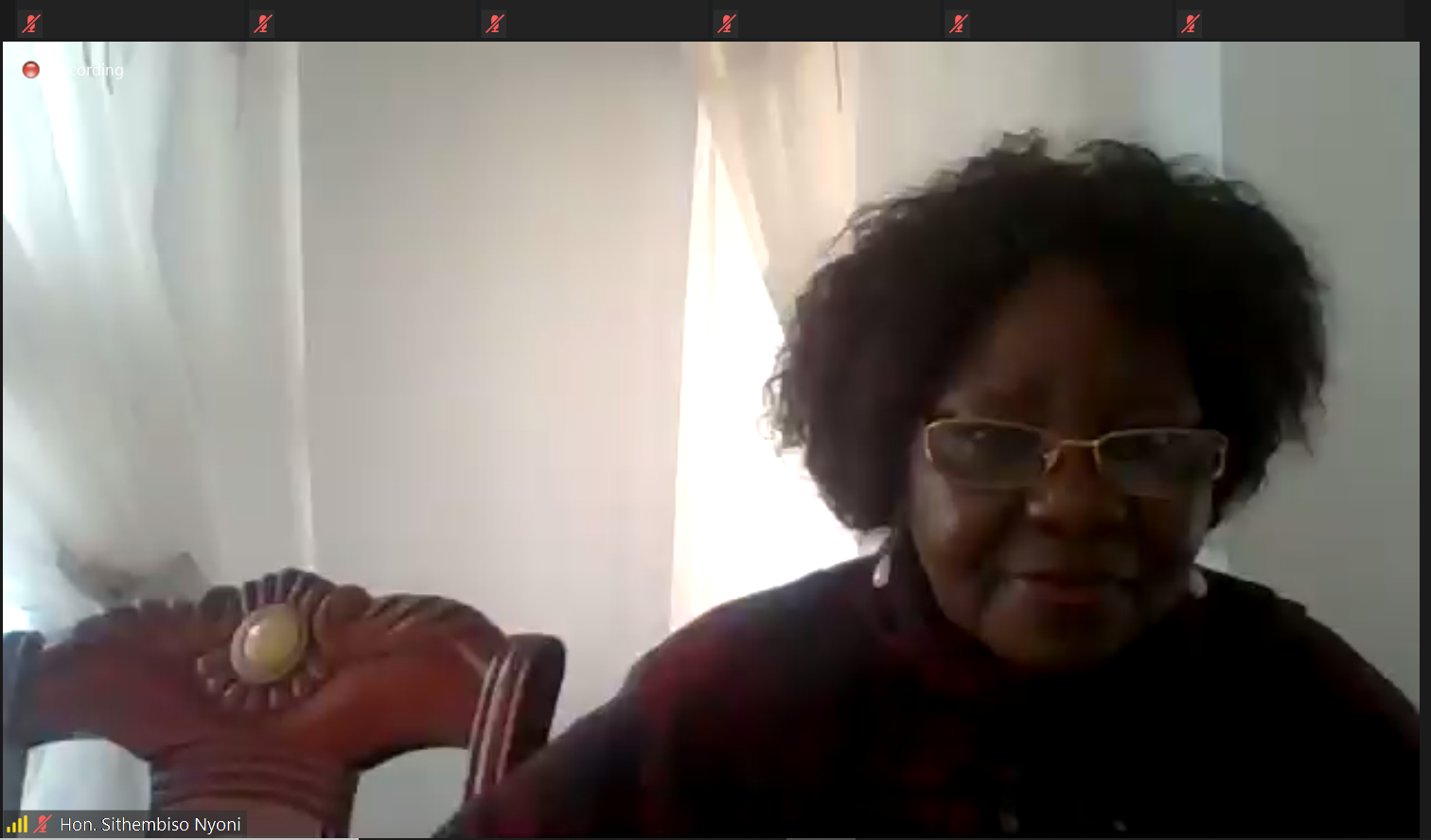
Findings from the State of the World Population 2020 report show that all over the world, Zimbabwe included, tens of thousands of girls are, on a daily basis, having their health, rights and futures stolen from them through the prevalence of GBV and harmful cultural practices.
“The COVID crisis has taken a staggering toll on people, communities and economies everywhere. Yet not everyone is affected equally, and as we so often see, women and girls tend to suffer most,” UNFPA Executive Director Dr. Natalia Kanem. “The impact of COVID-19 will likely hamper global efforts to achieve the three ‘zeros’ at the heart of our work at UNFPA – zero unmet need for contraception, zero preventable maternal deaths, and zero gender-based violence and harmful practices against women and girls – by 2030. UNFPA projects that the pandemic will cut global progress towards ending gender-based violence within this decade by at least one third.”
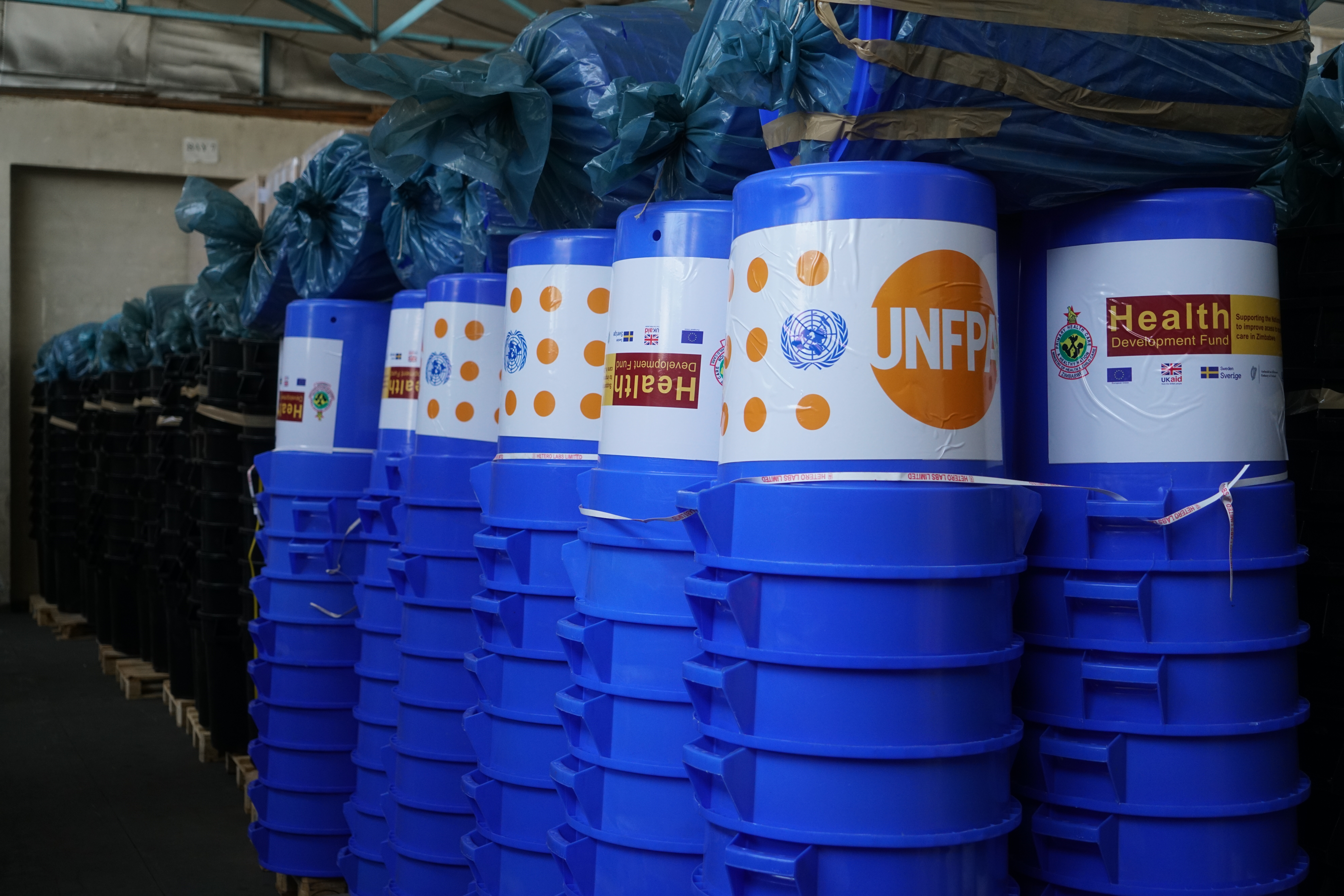
UNFPA and partners are supporting efforts to respond to GBV in humanitarian settings, including in climate-change triggered emergencies - cyclone, drought and disease outbreaks like the current COVID19 global pandemic. Programmatic interventions aim at reducing vulnerabilities of women and girls, which exacerbate the risk of exposure to GBV in emergencies, and ensuring continuity of essential services. Support includes ensuring that there is continuity in the provision and access to essential reproductive health services in order to reduce preventable maternal and neonatal deaths.
As part of measures to support the women and girls to maintain their dignity during the lockdown, the MOWCSMED distributed dignity kits to the National Training Centre, which is accommodating homeless women and girls. The government department also distributed dignity kits to OSCs supported around the country.
In light of the impact of COVID-19, UNFPA has also reprogrammed its work to support continuity of lifesaving maternal health interventions. UNFPA is supporting the Ministry of Health and Child Care with infection prevention and control sundries, personal protective equipment for health workers, equipment and sundries to support emergency obstetric and neonatal care. Support for efforts on strengthening psychosocial support for people affected or infected with COVID-19 continue to be provided. Water buckets, liquid soap and sanitizers for hand hygiene for women in Maternity Waiting Homes have been procured and distributed. In addition technical and financial support is being provided in the national COVID-19 response technical working groups. Efforts to ensuring availability of essential reproductive health commodities such as contraceptives continue to be supported.
“Sexual and reproductive health care is a right, and like pregnancies and childbirth, human rights don’t stop for pandemics. Together, let’s put the brakes on COVID-19 and safeguard the health and rights of women and girls – now,” says Kanem.
UNFPA work in Zimbabwe on ending GBV is supported by the Governments of Britain, Ireland, Sweden and the European under the Health Development Fund. The Governments of Ireland and Sweden also support the GBV365 National Programme. Support is also provided under the Spotlight Initiative to Eliminate Gender Based Violence by the European Union.
For more information and media queries please contact
Magdalene Chavunduka or Fanuel Chakawa Ministry of Women’s Affairs, Community Small and Medium Enterprise Development Tel: 263773404449 Email: magdalanechavunduka@gmail.com; 263713009302 Email: fanuel.chax@gmail.com
Bertha Shoko, Communications Analyst--UNFPA: Tel: 263 772 782 299 Email: shoko@unfpa.org
